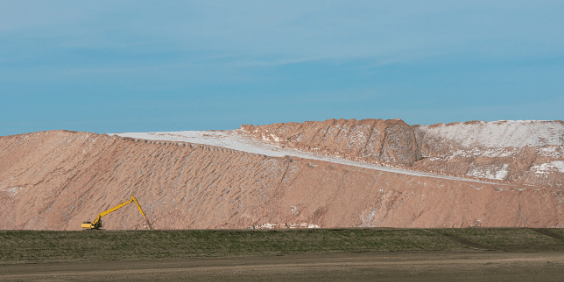Teck Coal Fined $60 Million for Fisheries Act Violations

On March 26, 2021, the B.C. Provincial Court issued Teck Coal Limited the largest fine in history under the Fisheries Act for contaminating B.C. waterways.
Teck pled guilty to two counts of depositing a deleterious substance into water frequented by fish, contrary to section 36(3) of the Fisheries Act. Following Teck and Environment and Climate Change Canada’s (Environment Canada) joint submission to the B.C. Court, the Court ordered Teck to pay $60 million in fines, which equates to about $80,000 per offence per day. $58 million of the fine will go to the federal Environmental Damages Fund, which supports projects that benefit the environment; the other $2 million will go to general revenues.
Environment Canada’s Investigation Into Teck’s Operations
In 2012, Environment Canada launched an investigation into Teck’s operations. The investigation determined that waste rock leachate, namely selenium and calcite, from Teck’s Fording River Operations and Greenhills Operations coal mines were deposited into the Fording River in British Columbia and its streams.
Environment Canada found that fish in the Fording River contained selenium concentrations sufficient to cause adverse effects in fish. Environment Canada also found that calcite deposits from Teck’s operations caused hardening of riverbeds, which can affect fish habitat.
Lack of Due Diligence
Section 36(3) of the Fisheries Act is a strict liability offence, which carries a maximum penalty of $6 million to a corporation for a first offence and $12 million for a second or subsequent offence.
If the deposit of a deleterious substance occurs over multiple days, it is considered a separate offence with a separate penalty for each day it continues. Organizations may rebut a charge under section 36(3) by demonstrating that they took all necessary steps to prevent committing the offence.
Teck had a duty to take reasonable measures consistent with public safety and to conserve and protect fish and fish habitat to counteract and remedy any adverse impacts.
In this case, Environment Canada determined that Teck did not take all reasonable measures to conserve and protect fish and fish habitat. Teck also did not exercise due diligence to prevent the deposit of deleterious substances in the first place.
Fisheries Act Direction
In addition to the fine, Teck must comply with Environment Canada’s Fisheries Act Direction issued on October 29, 2020.
The Direction sets out measures Teck must take to improve water quality and prevent calcite deposits in the waters affected by Teck’s coal mining operations, including removing selenium before it reaches the Fording River and requirements for water diversions, mine planning, fish monitoring and calcite prevention.
How Does This Affect Resource Companies?
This penalty demonstrates Environment Canada’s growing concern with large mining operations contaminating waterways. Accordingly, resource companies should ensure their internal teams are aware of applicable legislation. Companies should also emphasize enforcement of internal and external policies to comply with environmental legislation.
Given the penalties at stake for breaches of the Fisheries Act and other environmental conservation legislation, resource companies should create and implement robust policies and programs aimed at complying with the legislation, in order to mitigate potential releases of contaminants and other polluting activities.
In addition, if a contravention or potential contravention occurs, companies should have procedures in place to immediately counteract the effects of such contraventions.
Our environmental and regulatory team would be pleased to assist your organization with any questions regarding compliance with environmental laws and with developing and implementing policies to mitigate the risk of environmental contamination.
Note: This article is of a general nature only and is not exhaustive of all possible legal rights or remedies. In addition, laws may change over time and should be interpreted only in the context of particular circumstances such that these materials are not intended to be relied upon or taken as legal advice or opinion. Readers should consult a legal professional for specific advice in any particular situation.





